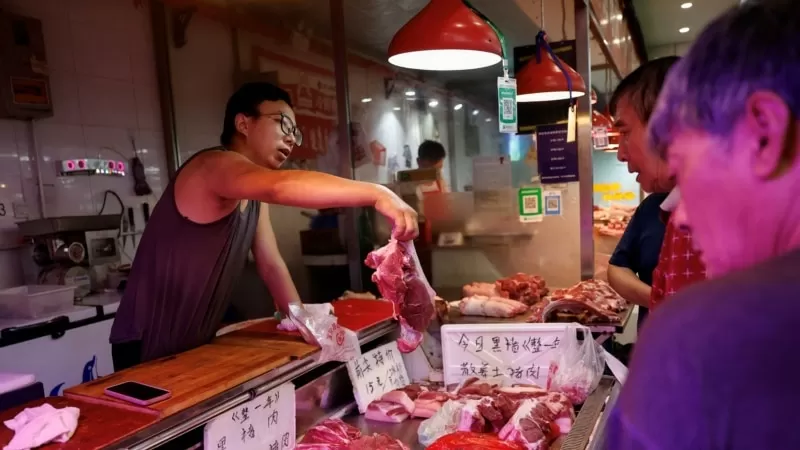China has recently launched an anti-dumping probe into European Union (EU) pork, targeting companies from Denmark, the Netherlands, and Spain. This move has raised concerns among these countries, as they fear it may have a negative impact on their pork exports to China.
The Chinese Ministry of Commerce announced on Monday that it will investigate allegations of dumping and subsidy practices by EU pork producers. The probe is set to cover the period between 2018 and 2020 and will determine whether these companies have been selling pork products in China at unfairly low prices.
The three countries singled out in the probe are major exporters of pork to China, with Denmark being the largest supplier, followed by Spain and the Netherlands. In 2020 alone, China imported over 2 million tons of pork from the EU, worth a total of $5.4 billion.
This move by China comes as a surprise to many, as the country has been facing a shortage of pork due to the African swine fever outbreak, which has decimated its domestic pig population. In order to meet the growing demand for pork, China has been relying heavily on imports, with the EU being its top supplier.
The probe has caused concerns among the targeted countries, as it could potentially lead to higher tariffs and restrictions on their pork exports to China. This could have a significant impact on their economies, as the pork industry is a major contributor to their GDPs.
Denmark, in particular, has expressed its worries over the probe, as it is heavily reliant on pork exports to China. The Danish Agriculture and Food Council estimates that the country’s pork industry could lose up to 3 billion Danish kroner ($480 million) in annual exports if China imposes tariffs on its products.
The Dutch and Spanish governments have also expressed their concerns and have requested more information from China regarding the probe. They have emphasized the importance of fair trade practices and have stated their willingness to cooperate with the investigation.
Meanwhile, the EU has also responded to the probe, stating that it will closely monitor the situation and take necessary measures to protect its companies and ensure fair trade. The European Commission has also expressed its willingness to engage in dialogue with China to resolve the issue.
Despite the concerns raised by the targeted countries, it is important to note that China’s actions are in line with international trade rules. The World Trade Organization allows countries to take measures to protect their domestic industries from unfair trade practices, such as dumping and subsidies.
China’s move to investigate EU pork producers should not be seen as a hostile act, but rather as a way to ensure fair competition and protect its domestic pork industry. The Chinese government has stated that it is committed to promoting free and fair trade, and this probe is a testament to that commitment.
Moreover, China’s decision to target only three countries in the probe should not be seen as a reflection of its relationship with the EU. China and the EU have a strong trade relationship, and this probe should not affect it negatively.
In fact, this could be an opportunity for the EU and China to strengthen their trade ties and work towards a mutually beneficial solution. The EU is a major exporter of pork to China, and the Chinese market is crucial for the EU’s pork industry. Therefore, it is in the best interest of both parties to resolve this issue amicably.
In conclusion, China’s anti-dumping probe into EU pork should not be seen as a cause for concern, but rather as an opportunity for both parties to promote fair trade practices and strengthen their trade relationship. It is important for all parties involved to engage in constructive dialogue and find a mutually beneficial solution to this issue.


